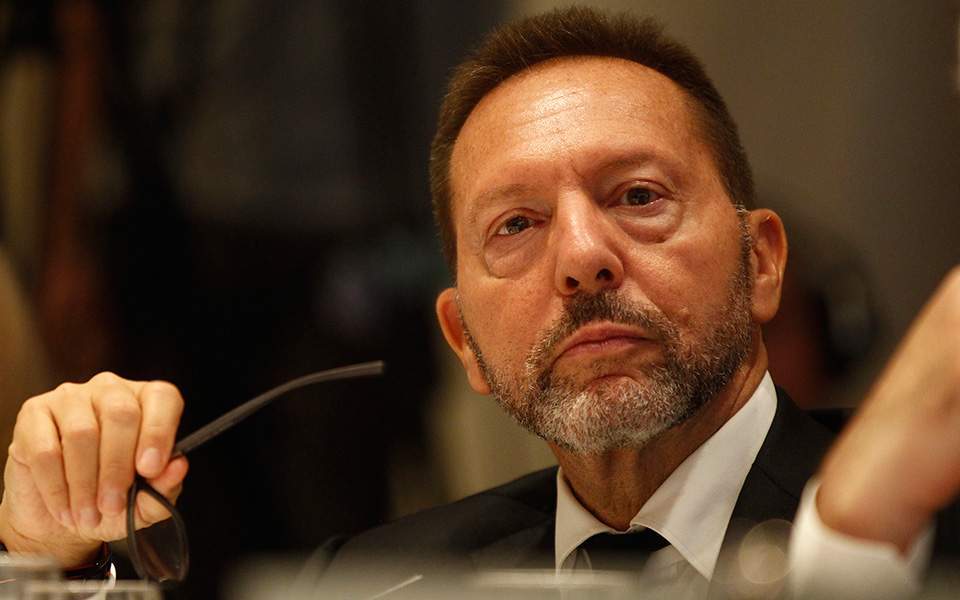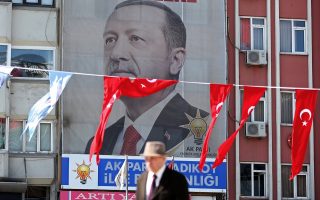Greek PM’s seven-year war against central banker

The standoff between the leftist SYRIZA party and the governor of the Bank of Greece dates back to the very day that Yannis Stournaras was appointed finance minister under the coalition government of New Democracy’s Antonis Samaras and PASOK’s Evangelos Venizelos, on July 5, 2012.
Then in the opposition, Alexis Tsipras’s party was often violently critical of Stournaras, who bore the onus of defending government policy in Parliament. The son of a communist, with a PhD from Oxford University, the economist has always stood as an “institutional barrier” to the plans of politicians who have emerged from the ranks of the communist student movement and believe that a different monetary model would be possible for Greece and the European Union in the future.
From June 10, 2014, when SYRIZA reacted to Stournaras’s appointment as governor of the Bank of Greece, up until the recent uproar over Alternate Health Minister Pavlos Polakis’s efforts to intimidate the central banker after he looked into the matter of a loan that had been granted to the politician, the economist remains one of the main targets of the government’s criticism and discontent.
In his book “Adults in the Room,” on the subject of Greece’s white-knuckle negotiations with creditors in the summer of 2015, Alexis Tsipras’s first finance chief, Yanis Varoufakis, describes how Tsipras had told his associates in leftist SYRIZA that the first thing he would do as prime minister was to kick Stournaras out of the Bank of Greece. According to well-informed sources, the prime minister and his close associates regarded Stournaras as the key obstacle to the “tough negotiation” the leftists were planning to get Greece’s bailout agreement canceled.
One of the ideas that was particularly popular in government circles after SYRIZA rose to power was a raid on the National Mint and the seizure of its supply of euro banknotes. Another ambitious “plan” was to prop up Greek lenders with funding from the central bank via the emergency liquidity assistance mechanism, which would allow Athens to continue bargaining with lenders, without having to account for the rules and limitations of the European Central Bank. Put simply, the government wanted the Bank of Greece to ignore Frankfurt and provide emergency liquidity to the country’s lenders so that it could insist on its negotiating position.
The truth is that neither plan was rational or practical as both would have resulted in the eviction of the “rogue state” from the Eurosystem. Europe was in no position to accept the idea that a member-state could make decisions about its banks while ignoring everything else. In order to safeguard the principal of reciprocity, it would have had no choice but to proceed with a Grexit.
The government could not have been ignorant of something so elementary, thus raising the question: Did Stournaras save Greece from a deliberate accident that would have put it on the road of no return? Many believe that the BoG chief did indeed prevent a calculated confrontation with the creditors. Others insist that this is too harsh an interpretation of the events of that summer and that SYRIZA never really wanted to put the country through the turmoil of returning to the drachma.
Those in the know, however, say that during that make-or-break summer of 2015, the Bank of Greece was instrumental in helping the government understand that any decision which resulted in getting the country booted out of the euro could result in criminal prosecution on the grounds that it would have inevitably led to the collapse of the domestic credit system.
However, the government’s swift reconciliation with the European status quo was not accompanied by a normalization of relations with Stournaras. The central banker was maligned on an almost daily basis and on the slightest of pretexts, while also being called to stand before sundry parliamentary investigative committees, almost having to defend himself, on issues ranging from state contracts with German electronics giant Siemens to political party funding from banks. His unwillingness to sweep data under the rug, such as the cost of the “tough negotiation” which, according to BoG estimates, came to 86 billion euros, did not help improve relations between the two sides either.
The biggest clash, however, was prompted by the BoG’s 2016 investigation into several problematic loans issued by Attica Bank, a non-systemic lender. It transpired that several businessmen who are known to have pro-government sentiments – such as contractor Christos Kalogritsas, among others – enjoyed preferential treatment and were not required to present the customary collateral for loans. There was evidence to suggest that the bank was being politically manipulated, to the detriment of its shareholders. Stournaras sent the BoG’s findings to a prosecutor.
The following day, September 16, the tax authorities raided the offices of a communications and conference company owned by Stournara’s wife, Lina Nikolopoulou. The incident compelled the central banker to telephone Tsipras, who claimed ignorance of the raid. And while a part of the media has since kept Nikolopoulou firmly in its crosshairs without cause, the justice system has only now started moving on the issue of the Attica Bank loans.
Stournaras and his wife were systematically subjected to negative press throughout 2017 and 2018. SYRIZA stalwarts including Nikos Pappas, Christos Spirtzis, Dimitris Tzanakopoulos and Pavlos Polakis made a point of fueling the flames of discord between the government and the Bank of Greece governor. Among the central banker’s many “sins” were his efforts to convince the prime minister to ask for a precautionary credit line that would make it easier for Greece to safely tap international markets and give banks more leeway in their restructuring efforts.
The government opted instead for what it called a “clean exit.” In the meantime, Stournaras saw his name appear in the case file compiled from the testimonies of “protected witnesses” in the probe concerning Swiss pharmaceutical firm Novartis. Speaking in Parliament last year, Polakis had hinted that he knew the identities of those protected witnesses. A year later, he leaked the transcript of a telephone conversation he had with Stournaras during which Polakis complained about the central bank’s probe into two loans he had been granted by Attica Bank. Stournaras claims that the call was recorded without his consent.




